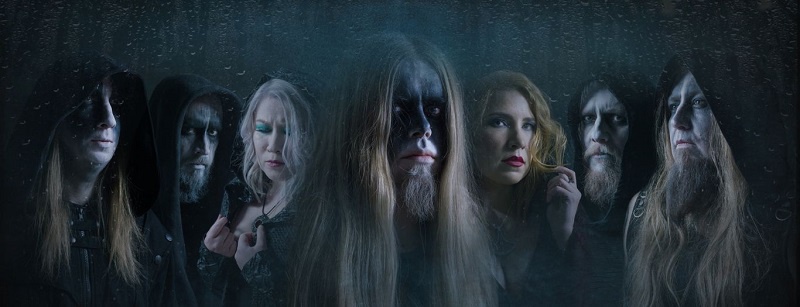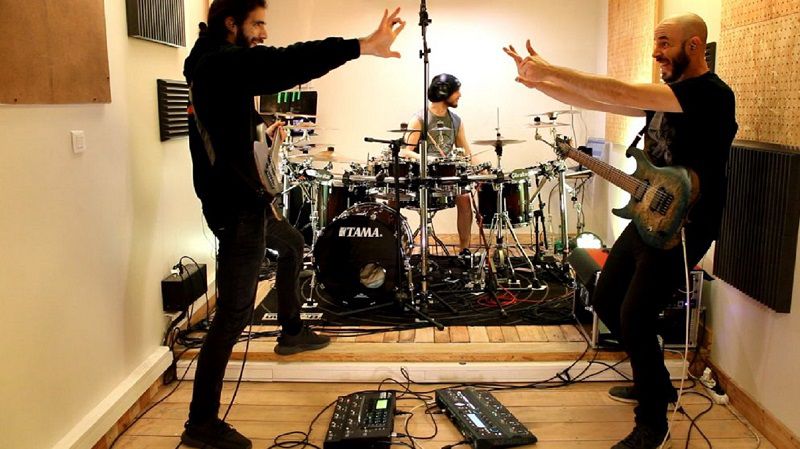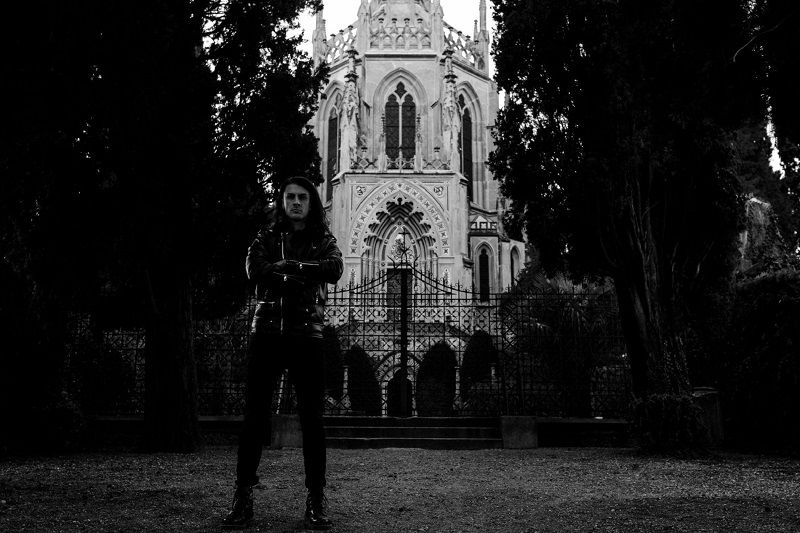-S- 🇵🇱 #Interview
9 min read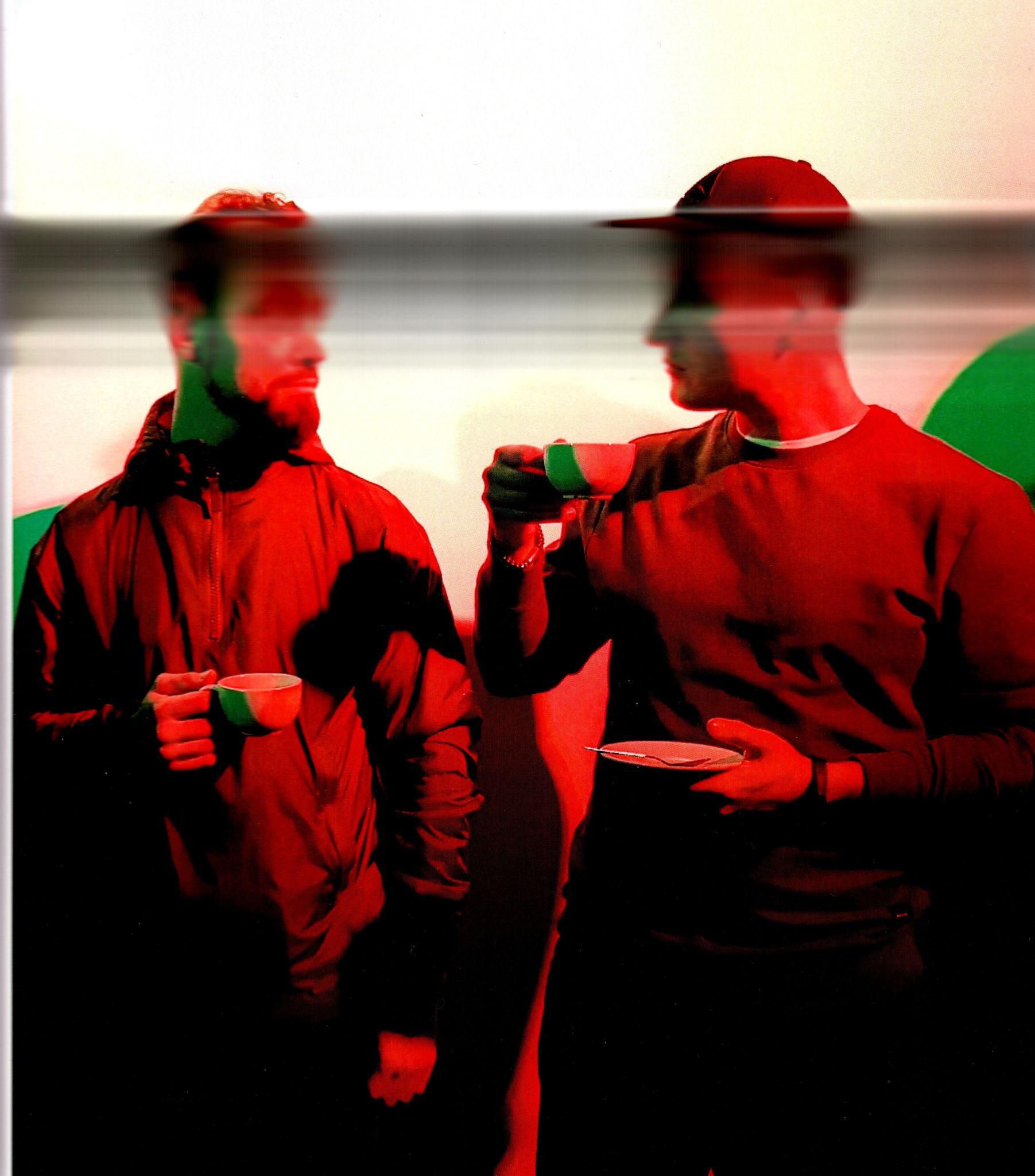
Poland’s -S- are a band shrouded in mystery. After an untitled debut in 2013, the band disappeared from view, before re-emerging in 2020 with their Zabijanie Czasu EP. Now the band, currently comprising Patyr (compositions, bass, vocals, ambient) and Grzegorz (drums) return with Dom, w którym mieszkał Wąż (A House Where Dwelled A Snake), on I, Voidhanger Records,a powerful mix of doom, jazz and dark funk. Alongside the duo, the album features some standout guest clarinet playing, adding to the powerful atmosphere of the record. Patyr was kind enough to take the time to answer some questions about the band and their latest release.
Thanks for agreeing to this interview with Blessed Altar Zine. Your forthcoming album Dom, w którym mieszkał Wąż (A House Where Dwelled A Snake) delighted me from the first moments. I feel transported to a seedy netherworld with each listen. How happy are you with the way the album turned out?
Patyr: We’re very pleased with the final outcome, especially with the sound we’ve managed to achieve – thanks to the work of Marcin from Moustache Ministry who took over the mix & mastering process. For me personally it’s also quite an achievement since the first sketches of the album had been created more than 5 years ago. I’ve recorded the first instrumental version of the material on my own by then, but it had to wait until I invited Grzesiek (drums) to the project. First, we created completely new material (1st part of „Zabijanie Czasu” EP) and ensured that both of us share the same feeling and vision about the style we’d like to further develop with –S-. After that, I felt it’s the high time for the old material to be finished, but this time with a fresh mind and new source of inspirations. Eventually, it appeared quite a long struggle, as the piece once believed to be finished required few crucial elements to be added: clarinet lines, lyrics and vocals. I was happy to meet first with Nana Rovira, who sent us over some of the initial bass clarinet lines, and then to invite Michał Górczyński who enchanted the material with his double-bass clarinet. In the meantime I’ve been looking for a proper theme that could serve as an apt main thread throughout the album, as it was meant to be one constant and uninterrupted piece. Eventually I’d return to my old fascinations with the faustian myth and I’ve reinterpreted it through, let’s say, more willful lenses. But it was not until the whole album was finished that I really grasped the personal meaning of the album making process. It was and still is revealing to me, as I treat the material as very intimate.
Anyone who listens to the record will feel the dark atmosphere. What is the album about?
Patyr: To put it bluntly, the „House” from the album’s title is a metaphor for the human „soul”. An enchanted and infected dwelling, a shattered nest without a definite source, where the most unpredictable phenomena can actually happen. The snake inhabiting it is both its transformative, liberating, creative energy, and its destructive, restraining curse. A veil between being „mere a human” and something closer to „a god” – the devil.
The album is an abstract meditation over Faust’s nightmare – or rather it’s modern persona, who already in his youth is even more decadent, sceptical, reluctant towards both reason and faith, frustrated, unfulfilled and overloaded with stupefying abundance of any possible worlds. He’s a kind of a ticking bomb which intoxicates everything good and bad that the life can offer. The album reconstructs a rite, during which he gradually finds out that the liberation he decided to seek through invoking devilish powers, damning his life and rejecting love of this world and other people, is just another illusion, which pulls him ever further away from finding his true self. But in the end he is helpless to determine how to unscrew the rite, and there’s no way out from the constantly returning nightmare. In the end it seems that he is the snake, and the snake is himself. “Geist ist Teufel”, or more aptly: Janvs Absconditus, the dweller of both our withins and outsides, a breathing ambiguity.
The bleakness of these songs and the pounding force remind me of early Swans. Have there been any records in particular that inspired you musically in the making of this release?
Patyr: It’s interesting that you’ve mentioned the Swans, as it’s one of important musical projects for me – but it’s not a direct inspiration for the –S- style. Maybe there’s been some subliminal interference as I’ve been listening to lots of their records around the period the –S- album has been composed, although it tended to be their newer releases – „The Seer” & „To Be Kind”.
But when it comes to direct inspirations, I could actually point out many, but I restrict myself to a few. Definitely Bohren & Der Club of Gore and The Kilimanjaro Darkjazz Ensemble were important when it comes to the „doom jazz” aesthetics. Miles Davies “Ascenseur pour l’échafaud” soundtrack and Badalamenti’s compositions for “Twin Peaks” – when it comes to this frivolously bleak jazzy mood. The German-Belgium Dictaphone project, Julien Neto’s „Le Fumeur de Ciel”, Biosphere, November Növelet/Haus Arafna and Coil for the surrealistic, uncertain, dreamy atmosphere. Urfaust, Circle of Ouroborus, Bölzer, Arizmenda, Kuxan Suum, Blut aus Nord and Rhinocervs (RH-07!) releases for the black metallish core. Wojtek Pilichowski, Primus, Jaco Pastorious, Adam Nitti, GTA Vice City Fever 105 soundtrack and in general funky soul classics for the funky vibe. And when it comes to some Polish inspirations – I’d mention Variete and Republika, classics of Polish new wave & post rock – and Polish psycho-rap classics, quotes from whom you can also hear in some parts of the album: Kaliber44 and 3xKlan. Last but not least, Polish Kat „Oddech Wymarłych Światów”, which is still one of the most important metal records for me and I listen to it regularly.
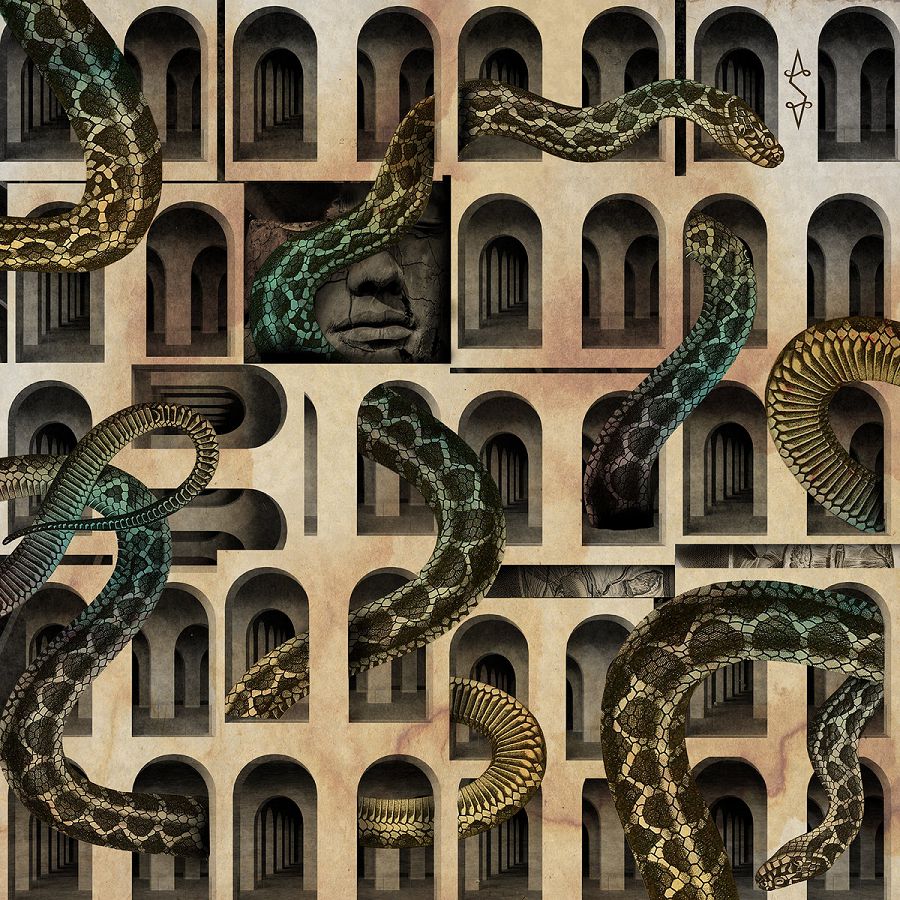
I, Voidhanger Records seems the perfect place for your music. How did you come to work with the label?
Patyr: Some years ago we got in touch with Luciano, the label’s CEO, in the context of planned release of my other solo project – In the Court of a Broken Flesh. Eventually it’s been released by Markov Soroka’s Vigor Deconstruct label, but Luciano got interested in the –S- project. Indeed, it is a good place for such a freak as –S- to be exhibited, especially that we’re in constant crossroads with our extreme metal rootings and plenty of other weird inspirations, which is apparently the label’s speciality.
There’s been a noticeable shift in sound from your first untitled record in 2013 to this new release. What were the band’s intentions on that first release and how has the band changed from then to now?
Patyr: The first album was an amateurish, spontaneous, intentionally lo-fi outburst of frivolous concept we came to with the –S-‘s co-founder, clarinetist and vocalist, Przemek (P.). Sadly, we didn’t manage to finish all the rest of the material together and the project has been suspended for few years. It’s been re-inaugurated in 2019 with Grzesiek on drums (with whom we also play in Licho and Koniec Pola. In this form –S– is slowly but inevitably bending over towards more straightforwardly „dark funk” style. Clarinetists have been invited so far only as a session musicians but it’s not excluded that eventually we’ll find someone who’d join our duo for a more long-term adventure. Generally speaking, since the project’s formation my inspirations and ideas shifted and moved away from the gnostic and satanic themes towards less defined, quotidian occultism and more general philosophical inspirations.
There’s an organic feeling to this record, fluid, but I could also imagine the tracks to be very carefully planned out. When you play these songs live will you hold them strictly to their form on record, or will they be free to branch out in different directions?
Patyr: All these compositions were carefully composed, so if performed live I’d like to stick as much as possible to the form we’ve recorded them in studio.
What’s the meaning behind the name of the band?
Patyr: You ought to read the -S- notation as a lexical simplification of the symbol you can find on the covers, and as such – as a shortening for “sigil”. It aims at liaising together two opposite, broken ribbons of infinities – something that could be read as a metaphor for human’s metaphysical emplacement in the world. But at the same time, as a sigil in itself, as it changes its content and context with every album – the title and lyrics grant it a new meaning.
In what way do you think the place you live has influenced the music you make?
Patyr: I am where, when, how and with whom I live, hence the influence is most probably as vast as inscrutable. The task of deciphering and cognizing it is the life itself, and probably I’d get too journalistic and boring if trying to describe what specific influences and meanings I could infer from the recent years and places. Hence excuse me as I’d eagerly get metaphysical once again. The music I make is about a particular movement of the soul I tend to observe: the act of non-being-there, the constant elusiveness of „then”, „now” and „soon”; escaping through returning and returning through escaping to and from some form of tangible consciousness via the power of imagination which both weakens and somehow enchants the reality I live in. The music I make helps me to grasp the reality of the everyday experience, even though in the end it’s as elusive and impalpable as anything. Until something new is created again. I’d say that ultra-modern times require sly forms of magic in order to glue yourself together.
Do you feel like you have other like minded bands making music around you and if so who are some our readers should be listening to?
Patyr: It’s hard to say if there are any „like minded” bands around, but when it comes to some ‘similarities’ in terms of ideas or the mood that could be somehow associated to –S– for the purpose of joint tour, I’d point out Five The Hierophant, The Comet Is Coming or Badbadnotgood. Besides, I’d recommend you to check out the Polish band Dola – I found it to be one of the most invigorating acts on the Polish „extreme” scene in the recent years. And, in the case that for some reason you haven’t digged it yet – the last album of Polish Furia– a genuine piece of blackened theatrical ritual.
Are there plans to tour the new album? If so, I hope you’ll make it to Germany.
Patyr: Not at the time being, sadly – mostly due to the fact that we’d need to find really ingenious clarinetist to be able to re-create the lines Paweł Szamburski/Michał Górczyński performed and they’re most likely unreachable for that purpose. Despite it’s not our current priority, we’d love to perform at least some excerpts from the „Dom” live on some occasion.
Finally, is there anything else you’d like to mention or promote?
Patyr: Keep your ears open for the next –S- piece which will be coming soon, as actually we’re just getting started with invoking the darkest forces of the funk.
interview: Tom Osman
Thanks to Patyr for his time. Dom, w którym mieszkał Wąż (A House Where Dwelled A Snake), is outon I, Voidhanger Records on 22 April. Follow the links below to buy the album on CD or vinyl.
Band
Soundcloud
Label
Website
Bandcamp
Facebook
YouTube
SoundCloud
Webstore
**Please support the underground! It’s vital to the future of our genre.**
#WeAreBlessedAltarZine
#TheZineSupportingTheUnderground

